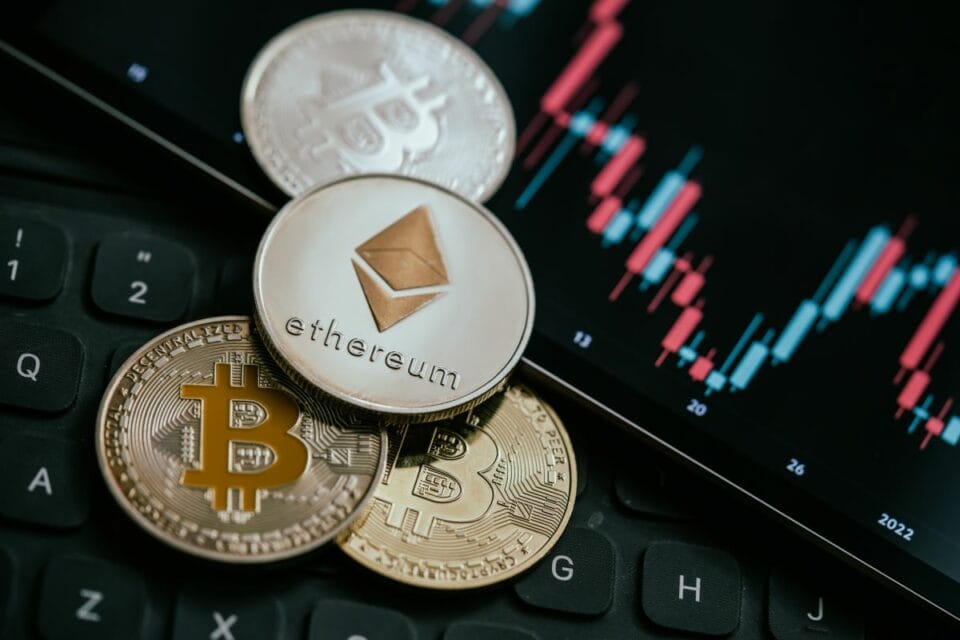Crypto exchanges in the Middle East region are breaking new ground in the realm of digital finance. The platforms facilitating their trade signal a promising era for digital finance.
These regulated platforms allow convenient deposit options for multiple Middle Eastern currencies, including SAR, AED, BD, and more, via bank transfers or credit cards.
Furthermore, an upward trend in cryptocurrency acceptance looms on the horizon—75 percent of surveyed retailers forecast they will accept cryptocurrencies over the next two years. Interestingly, this trend expands beyond the GCC region.
At present, there are over 420 mn crypto users worldwide, reflecting an average global crypto ownership rate of 4.2 percent. This expanding acceptance indicates the continuously escalating demand for such transformative platforms.
Cryptocurrency regulations in the Middle East
The viewpoints towards cryptocurrency regulations vary widely across the Middle East. In the United Arab Emirates, there has been a significant stride towards progressive crypto-encouraging policies, with the Abu Dhabi Global Market (ADGM) and Dubai’s Virtual Assets Regulatory Authority (VARA) spearheading this endeavor.
Comparably, the Central Bank of Bahrain has put forth a substantial regulatory system centered on licensing, governance, and cybersecurity for cryptocurrency operations.
Nonetheless, countries like Saudi Arabia and Kuwait showcase a more reserved approach. Central authorities such as the Saudi Arabian Monetary Authority (SAMA) and the Central Bank of Kuwait have likewise rolled out advisories about crypto trading.
What is a regulated crypto exchange?
A regulated crypto exchange operates under the guidance and scrutiny of a regulatory body. These exchanges adhere to specific rules and regulations, ensuring a transparent and fair trading environment. Furthermore, they protect exchange users from asset losses, fraud, hacking, and misrepresentation.
Read: 67 percent of UAE crypto transactions driven via institutional investment
Regulated crypto exchanges in the Middle East
Bybit
Bybit is known for its trading engine and diverse trading options. The platform is equipped with futures and perpetual contracts for over 850 cryptocurrencies.
Security being paramount, Bybit incorporates advanced measures such as two-factor authentication (2FA) and cold storage for digital assets. These help safeguard users’ funds and ensure a secure trading environment.
With its user-friendly design, Bybit’s interface is not only approachable but also multilingual. In addition, it provides round-the-clock customer support and a rich repository of educational tools. What is more, its Arabic-speaking social media communities foster better engagement and responsiveness within the regional audience.
Binance
Binance is a regulated exchange that offers low trading fees and an extensive selection of over 350 cryptocurrencies. In addition, it offers staking services, which is good for users looking to accrue added income on their crypto holdings.
One distinctive feature is its smart chain technology, which paves the way for the development of decentralized apps (dApps). Binance’s strong security, incorporating 2FA and withdrawal whitelist options, further solidifies its robust performance.

Kraken
Offering an extensive range of crypto and fiat currencies like AED, USD, EUR, and GBP for spot and futures trading, Kraken also provides educational content to help users master the complexities of cryptocurrency trading. Moreover, Kraken maintains user trust by conducting regular external audits and producing financial reports to verify that all assets are held at 1:1.
In addition, Kraken brings to the table features like margin trading with up to 5x leverage and a customized service for institutional investors. These provisions make Kraken an attractive option for users who appreciate transparency and a broad spectrum of trading choices.
KuCoin
KuCoin has emerged as platform for for altcoin trading. It supports over 700 cryptocurrencies and provides options for spot and futures trading.
Additionally, it prioritizes user safety and peace of mind, as demonstrated by the introduction of an insurance fund designed to cover potential system-related losses. Users can also take advantage of KuCoin Shares, its native token that can be utilized to pay trading fees and participate in token sales.
Rain
Rain caters specifically to the Middle Eastern market and operates under the strict regulation of the Central Bank of Bahrain. It supports a wide variety of cryptocurrencies and allows direct bank transfers in six local currencies.
Rain’s simplistic user interface is tailored for beginners in the cryptosphere. Its security infrastructure also stands strong with industry-standard encryption and cold storage solutions for digital assets.
Despite having a less extensive digital currency lineup, Rain remains a feasible choice within the GCC’s crypto exchange market.
BitOasis
BitOasis has developed a comprehensive suite of services, including cryptocurrency trading, wallets, and secure storage options. Likewise, BitOasis operates under the watchful eye of the ADGM.
This exchange has managed to amass a sizable user base, catering to customers from the UAE, Saudi Arabia, Bahrain, Kuwait, Oman, and more. In addition, it supports direct deposits and withdrawals in AED, allowing for ease of transactions and facilitating seamless crypto-to-fiat conversions.
CoinMENA
CoinMENA, a prominent digital asset exchange based in Bahrain, provides an all-encompassing platform. Under the Central Bank of Bahrain’s regulation, users can securely buy, sell, and store cryptocurrencies.
Since its launch, CoinMENA has rapidly expanded its user base to 250,000. It now caters to users across the GCC, including Saudi Arabia, the UAE, Bahrain, Kuwait, and Oman. Furthermore, the platform caters to Arabic-speaking users, offering a more personalized experience.
Embracing the digital finance revolution
The growth and proliferation of regulated crypto exchanges in the Middle East demonstrate a strong conviction toward embracing the digital finance revolution. As more users adopt these platforms and cryptocurrencies become increasingly mainstream, the future is poised for innovation, growth, and global interconnectedness.
For more stories on banking and finance, click here.




